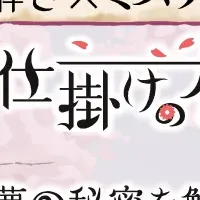
How Historical Insights from Musicians Illuminate Our Creative Futures
Musicians and the Echoes of History
The Second Liangzhu Forum recently convened on November 11, 2024, in the vibrant city of Hangzhou, which is located in China's Zhejiang Province. Under the stimulating theme of "exchanges and mutual learning for a new model of human progress," the forum attracted over 300 participants, including cultural officials, diplomats, writers, archaeologists, and musicians, from more than 60 countries worldwide. The gathering aimed to delve deeper into the rich cultural resources of the ancient Liangzhu civilization.
The forum featured several sub-forums and international seminars focusing on diverse subjects like archaeology, music, literature, and art. This setup fostered a collaborative environment for experts to engage in interdisciplinary discussions and explore innovative perspectives. Among the standout presentations were insightful dialogues between music scholars such as Professor Li Youping from the Wuhan Conservatory of Music and Professor Bobby Borg from the University of Southern California.
Professor Li, a renowned figure in music archaeology, underlined the significance of musicians visiting archaeological sites like the Liangzhu Ruins. He believes that immersing oneself in these historical spaces can ignite inspiration, encouraging musicians to weave historical contexts into their artistic expressions. His vision entails forging deeper partnerships between musicians and archaeologists, paving the way for groundbreaking artistic endeavors that unite past and present.
Professor Borg echoed this sentiment, sharing his admiration for traditional Chinese instruments, particularly the flute. He recounted a memorable performance in Hangzhou where these melodies captivated him, inspiring his mission to motivate his Chinese students. Borg emphasized the potential of integrating traditional sounds and cultural heritage into contemporary music, effectively bridging the gap between history and modern musical landscapes.
The interplay of music and archaeology offers a fertile ground for cross-disciplinary innovation, allowing artists to draw from the wisdom of past civilizations while enriching their creative processes. As these musicians share their experiences and insights, they illuminate pathways for future generations to explore the depths of their cultural identities.
As the discussions at the Liangzhu Forum continue to resonate globally, they raise essential questions about how history shapes our understanding of art today and how it can transform the future of music. Events like this not only celebrate culture but also serve as vital reminders of our collective stories and the myriad ways we can channel them into modern creativity.
Interested in diving deeper into the correlation between music and history? Stay tuned for updates and discussions on the thrilling outcomes of the Second Liangzhu Forum. To learn more, check out this insightful video: Watch Here.
Topics Entertainment & Media)










【About Using Articles】
You can freely use the title and article content by linking to the page where the article is posted.
※ Images cannot be used.
【About Links】
Links are free to use.